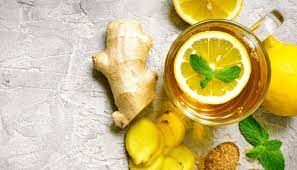Understand the Adverse Repercussions of Using Too Much Cumin in Food
A staple of Indian cooking, cumin, often referred to as jeera, is used in many commonplace recipes including lentils, vegetables, khichdi, curries of many kinds, and tempering. It is also a staple in non-vegetarian cuisines. Cumin is a common ingredient in many Indian homes, whether it’s used in a simple soup or a highly spicy dish. Cumin increases the taste of food when it is roasted or used to temper recipes. Even though cumin has many culinary uses, consuming too much of it may have negative consequences on the body that impact numerous areas of health. We will go into great depth about the possible adverse consequences of ingesting cumin in this extensive post, along with other relevant topics.
Immediate Effects:
Heartburn: Taking too much cumin may cause heartburn, which is a burning feeling in the chest and esophagus. This may be a painful and uncomfortable feeling that lasts for many hours.
Belching: Occasionally, cumin may exacerbate burping or belching, which can produce pain and a bloated stomach sensation.
Lower Blood Sugar Levels: Studies have shown a connection between cumin and lower blood sugar levels. Although this may help those with high blood sugar, in some instances it might result in hypoglycemia, which can produce symptoms including weakness, shakiness, and dizziness.
Long-Term Impacts:
Increased Risk of Miscarriage: Consuming too much cumin has been linked to a higher risk of miscarriage, especially in women who are pregnant. Pregnant women should limit how much cumin they consume and get advice from a medical practitioner.
Interaction with drugs: Cumin has the potential to interfere with several drugs, especially those that are administered for blood thinners and diabetes. It is imperative that people taking these drugs keep an eye on how much cumin they consume and get advice from a healthcare professional when necessary.
Damage to the Liver and Kidneys: Excessive and prolonged cumin use may have a negative impact on the liver and kidneys. Cumin must be taken in moderation in order to prevent undue stress on these important organs.
Skin irritation: Excessive consumption of cumin might cause rashes or itching on the skin in some people. It’s best to be aware of any allergic reactions and see a dermatologist if you have any problems with your skin.
digestive Problems: In sensitive people, consuming too much cumin may cause digestive issues including constipation, diarrhea, or even irritable bowel syndrome (IBS). Reducing the amount of cumin in your diet and eating it in moderation may help avoid these problems.
Allergies to the respiratory system: Cumin may sometimes set off allergies to the respiratory system, resulting in symptoms like wheezing, coughing, or dyspnea. Those who have previously had respiratory allergies should use care while ingesting cumin and, if needed, seek advice from an allergist.
Dosage and Safety Measures:
Cumin must be taken moderately and as part of a balanced diet to reduce the possibility of negative effects. Here are some safety measures to think about:
Speak with a Healthcare expert: Before using cumin in your diet, it is imperative that you speak with a healthcare expert if you are expecting, nursing, or have any pre-existing medical concerns.
Allergic Reactions: People who are known to be allergic to seeds or spices should exercise caution while taking cumin and should see a doctor if they feel any negative effects.
Moderation is key to avoiding any possible negative effects from cumin, even though it improves the taste of food and has some health advantages. Relying too much on any one component may be prevented by eating a balanced diet and using a range of spices.
Monitoring Intake: To avoid any possible interactions, anyone taking medicine for diabetes, high blood pressure, or any other chronic illness should keep an eye on how much cumin they consume and speak with their doctor.
Use in Cooking: Adding cumin to food may give it more taste and depth. To prevent overpowering the palate and any negative effects, it is best to use it sparingly and in harmony with other spices.
Although cumin is a well-liked spice with both culinary and medical uses, it’s important to be aware of any possible negative effects, particularly if used in excess. A healthcare provider’s advice and an understanding of the value of moderation may assist people in making educated food selections. When cumin is used sparingly and in sensible amounts, people may benefit from its taste and health advantages without sacrificing their general wellbeing.







